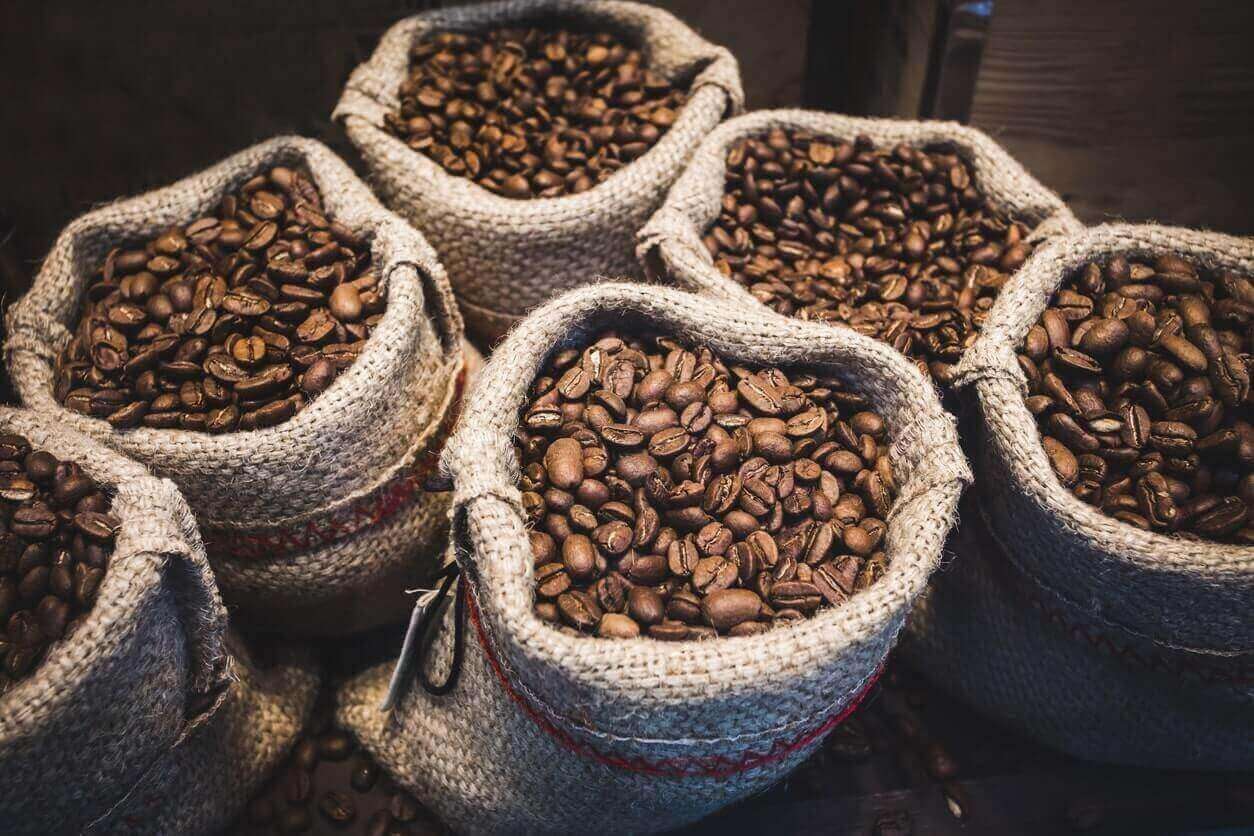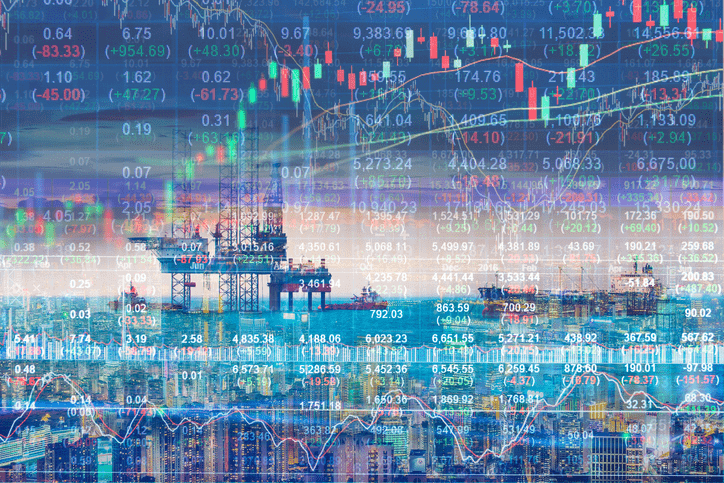-
- International (ENG)
Commodity trading covers the buying and selling of a large range of instruments including oil and gas, metals such as gold and silver and soft commodities like cocoa, coffee, wheat and sugar.
Commodity trading is as old as the financial markets, and perhaps even older than that. The first example of an organised exchange for trading commodities dates back to Amsterdam in 1530. These days there are a whole host of markets available to trade with just a few clicks of a mouse or taps on your mobile device, but some commodities remain as popular as ever. Read more about commodity definition here.
There are a range of commodities you can trade, including agricultural commodities such as corn, soybean and wheat. However, it's the energy markets, in the form of oil and gas trading, and metal markets (like gold and silver) that tend to be more popular with commodity traders these days.
We offer prices on over 100 spot and forward commodity instruments on our Next Generation trading platform, including Crude Oil (Brent and West Texas), Gold, Silver, Copper, Natural Gas and Coffee (we offer coffee trading for both Arabica and Robusta). This includes both spot prices and prices for forward contracts. When deciding whether to buy commodities at spot price or using a forward contract, traders can use contango and backwardation to decipher whether the future value may provide greater returns.
The commodity markets are traded in a similar way to other types of financial markets, but there are some points to be aware of in order to avoid any shocks or surprises when dipping your toe into commodities trading. In this article, we focus on two of the more actively traded commodities: oil and gold. You can spread bet or trade CFDs on the most traded commodities within the market.
Read more about spread betting and CFD meanings here.

Although there are many different types and qualities of crude oil, the two popular types to trade are Brent Crude and US West Texas Intermediate (WTI). As these are slightly different blends of oil, the prices vary depending on which one you are trading. Read our full guide on how to trade oil here.
When trading commodities, it’s important to be aware of events that can have an impact on oil prices. Prices don't just depend on how much oil is being pumped out of the ground, for example. As it’s a global fuel source, when the world economy is expanding and factories are working flat out, it stands to reason that world consumption of a commodity such as oil will go up.
As economies slow and demand drops, the price of oil and other commodities also tends to follow suit. In early 2016, crude oil was trading below $30 a barrel.
Since oil prices are also impacted by world events such as politics and socioeconomic situations, including the Middle East crisis, it helps as an oil trader to keep on top of news so as not to get caught out by an unexpected shift in oil prices.
Other factors influencing oil prices include decisions by the Organisation of Petroleum Exporting Countries (OPEC) and other major oil producing nations, such as Iran, on how much oil is produced and supplied to the market.

An ability to try and forecast how well or badly the world economy may fare in the months ahead is a definite plus point when it comes to trading a commodity like oil. But there is plenty of news that can cause fluctuations in the price on a day-to-day basis – and on an even shorter-term scale than that. If for example the US releases figures that show its economy is improving more quickly than expected, this could cause a surge in the price of oil as commodity traders start to bet that demand will increase, consequently putting up the cost of a barrel.
Or it could be that an oil-producing country resists international pressure to stabilise oil prices by increasing production. This could see further slides in the oil price as investors worry that more of the commodity will be produced than is needed. It really is a market that can be buffeted by plenty of world events, so it pays to stay on top of major economic news releases.
Another enduringly popular commodity is gold, which has long been considered a store of wealth and has held a special allure for many of us – as the Californian gold rush back in the 1840s would undoubtedly attest. Nowadays it’s traded like any other financial instrument and is still an important commodity to many traders around the world.
Traditionally, in times of trouble and market volatility, gold is perceived as a 'safe haven' – somewhere for investors to store their money away from other riskier assets. Although the yellow metal can in theory be traded in many currencies, the typical market quote is to price gold in dollars, usually as 'dollars per troy ounce'. This relationship to the US dollar is an important one and is another factor that will have an influence on the price of gold. If the dollar becomes more attractive to investors and starts to rise, the price of gold will usually drop. In recent years, some people have seen the US dollar as a safe haven for their money and that has reduced the appeal of gold.
This is another aspect to weigh up when trading gold: the impact any moves in the dollar will have on the price of gold. For example, if the US central bank, the Federal Reserve or FOMC, decided to cut interest rates, this would normally weaken the US dollar and lift the price of gold. As with oil, because gold is such a global commodity it pays to keep a watchful eye on the major economic announcements such as interest rates and unemployment figures, which are released on a regular basis.
Read our in-depth guide on how to trade gold.

The energy markets are also popular among commodity traders. The advent of renewable energy has generated added interest for commodities such as national gas, heating oil and gasoline. As with the oil markets, world events and politics can have an impact on the energy markets, so it is wise to keep an eye on news and economic releases when trading energy.
Some sources of energy cannot be invested in directly as a commodity, such as uranium, which is used for nuclear power stations. Instead, traders must invest in uranium through uranium stocks and ETFs.
A commodity spread strategy involves taking opposite positions within the same or similar markets. This is a slightly lower-risk strategy than using futures contracts, as spreads experience less market fluctuations than a futures contract that is set to expire within a matter of weeks or months. A trader may use commodity spread trading in the hope that the difference between the spread becomes more positive in the long-term, as the long side of the spread will rise in value in comparison with the short side.
Like other commodity trading strategies, commodity spread trading can be affected by seasonality and other external factors. Therefore, traders can take advantage of a bull spread when trading high in the peak season for a particular commodity. In the same way, the trader can use a bear spread when prices are falling at the lowest peak of the year.
To start trading within the commodity market, you first need to decide whether you would like to spread bet or trade CFDs. These are the primary methods of trading commodities that you should familiarise yourself with. Then, you can open a trading account by following the steps below.
One way to get a feel for commodity markets is to watch their moves over a period of time so you can experience the sort of things that happen and understand what makes prices change. And when you do start trading, it’s always sensible to start with small amounts and use risk management orders. Read more about risk management and market orders here.

Seamlessly open and close trades, track your progress and set up alerts
What is a commodity?
A commodity is a raw material or agricultural product that is actively traded, bought or sold. Frequently traded commodities include gold, oil, natural gas and sugar. The quality of a commodity may differ slightly, but it is basically uniform across all producers, as any commodities that are traded on an exchange must meet a specific minimum. See the range of commodities that we offer.
What do commodity traders do?
Commodity traders buy and sell a large range of tangible instruments, such as energy products like oil and gas; precious metals like gold and silver; and soft commodities like wheat, corn and sugar. Commodity traders undertake fundamental analysis and technical analysis to forecast market movements. They aim to buy when the price is low, which is usually determined by an abundance of supply and falling demand. They sell when they believe the supply is outweighed by the demand, which can result in a profit. Why not practice trading on the price movements of commodities via a Sign Up?
What are the margin rates on commodities?
Our margin rates for commodities start at 5% for gold and 10% for other commodities. This means that if you invested £5,000 into trading on gold, you would control a full trade value of £100,000, and £50,000 for all other commodities. However, please note that your profits and losses are magnified, as they are relative to the full trade value. See our guide to leverage in trading for more information.
How can I start trading commodities?
To get started, open a demo or live account to access our commodity trading platform. On our platform, you can undertake all of the required steps to start trading on price movements of commodities, such as choosing from a variety of instruments, buying or selling via order tickets, and implementing risk management techniques.
Disclaimer: ALFATRADING-MARKETS is an execution-only service provider. The material (whether or not it states any opinions) is for general information purposes only, and does not take into account your personal circumstances or objectives. Nothing in this material is (or should be considered to be) financial, investment or other advice on which reliance should be placed. No opinion given in the material constitutes a recommendation by ALFATRADING-MARKETS or the author that any particular investment, security, transaction or investment strategy is suitable for any specific person. The material has not been prepared in accordance with legal requirements designed to promote the independence of investment research. Although we are not specifically prevented from dealing before providing this material, we do not seek to take advantage of the material prior to its dissemination.